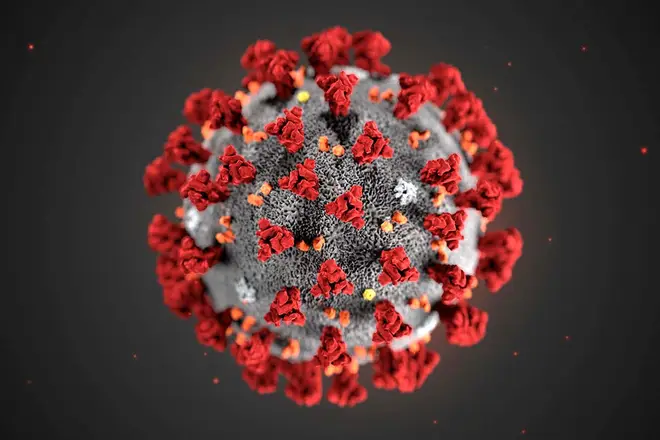
Oli Dugmore 4am - 7am
6 May 2020, 09:56

A new strain of coronavirus has been identified which scientists say is more contagious than other strains previously discovered.
The new strain, D641G, is more infectious than the version recorded in the early days of the Covid-19 pandemic, a study says.
The strain is also understood to be one of the most prevalent in existence. It reached European shores in February and moved quickly across the Atlantic to America's east coast, Scientists at Los Alamos National Laboratory in New Mexico wrote.
Their report, which also saw contributions from Duke University and the University of Sheffield, was first obtained by the Los Angeles Times.
As well as being more transmissible, the new strain is also believed to leave people more susceptible to contracting the virus for a second time.
However, separate research that emerged today by a team in Glasgow contradicted the findings, saying there were no mutations of the Covid-19 virus.
Dr Oscar MacLean, from the Medical Research Council-University of Glasgow Centre for Virus Research, said: "By analysing the extensive genetic sequence variation present in the genomes of the SARS-CoV-2 virus, the evolutionary analysis shows why these claims that multiple types of the virus are currently circulating are unfounded.
"It is important people are not concerned about virus mutations - these are normal and expected as a virus passes through a population.
"However, these mutations can be useful as they allow us to track transmission history and understand the historic pattern of global spread."

How to make your own face mask
The 33-page US study was published on BioRxiv - a website where researchers share their work before being peer-reviewed.
Many vaccines and treatments across the world have been focused on tackling the initial strain, the authors of the study warned.
Researchers said they shared their findings online because they felt an "urgent need for an early warning" to ensure efforts are geared towards finding cures for the new strain.
Scientists told the LA Times they are hoping that initial evidence of the virus' stability means it is unlikely to mutate in the same way as influenza.
If so, there will be no need for a new vaccine every year, however the Los Alamos report could undermine that hope.

What is the R rate?
The mutation affects the spikes on the exterior of the virus and allows it to enter the respiratory cells of the infected person.
Bette Korber, a computational biologist at Los Alamos who led the study, wrote: "The story is worrying, as we see a mutated form of the virus very rapidly emerging, and over the month of March becoming the dominant pandemic form."
She added: "When viruses with this mutation enter a population, they rapidly begin to take over the local epidemic, thus they are more transmissible."
The new strain was passed on to a greater number of people than the earlier versions that came out of Wuhan, China. Within a matter of weeks it became the only strain that was prevalent in some countries, the report adds.
It is not known why the new strain is more infectious.
Listen & subscribe: Global Player | Apple Podcasts | Google Podcasts | Spotify
The study is based on the analysis of more than 6,000 coronavirus sequences from around the world, with scientists identifying 14 mutations during their research.
Charles Brenner, a professor of biochemistry at the University of Iowa who has conducted research on how cells defend themselves against viruses, called the study a useful paper.
Teams around the world working to develop vaccines “would be watching papers like this very carefully,” he said.
However, Dr Peter Hoetz, co-director of Texas Children’s Hospital Center for Vaccine Development, called the new study “noteworthy” but said its conclusions require further investigation.
“There is a lot of speculation here,” Hotez said. “They have no experimental verification.”